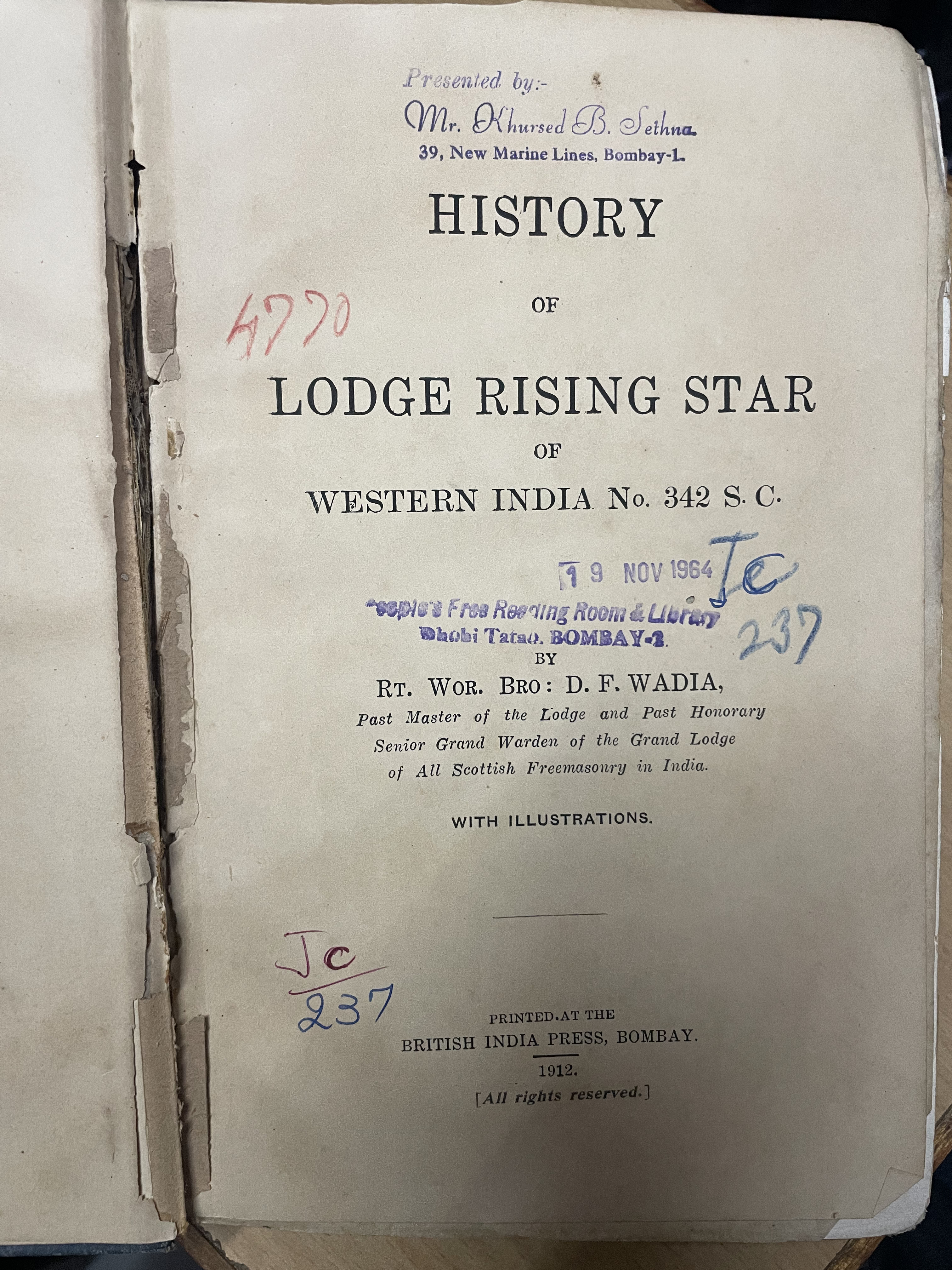History of Lodge Rising Star of western India

About
Summary
Exquisite
TOC
Details
Related
URL
Images
Overview
History of Lodge Rising Star of Western India by D.F. Wadia chronicles the establishment and evolution of Lodge Rising Star of Western India 342 SC, the first lodge to welcome native Indians into Freemasonry. Established in 1843, the lodge confronted challenges related to racial and social norms, as well as political disparities. Figures like Bro. Dr. James Burnes believed Freemasonry should be universally accessible, regardless of background.
Importance of Book
The book History of Lodge Rising Star of Western India by D.F. Wadia is a detailed account of one of the most important Masonic lodges in India. Lodge Rising Star holds a special place in the history of Freemasonry in India as the first lodge to open its doors to native Indians. This was a significant step in breaking down racial barriers and promoting inclusivity within the Masonic fraternity.
Key Themes
Inclusivity and Equality: The lodge's founding principle of welcoming Indians into Freemasonry challenged the prevailing racial biases of the time.
Perseverance: The lodge demonstrated perseverance by maintaining its activities and principles despite facing religious prejudice and social obstacles.
Tolerance: Lodge Rising Star promoted tolerance by bringing together people from different backgrounds and beliefs under the umbrella of Freemasonry.
Social Reform: The lodge played a role in social reform by advocating for equality and challenging discriminatory practices.
Masonic Values: The book underscores the importance of Masonic values such as brotherhood, charity, and the pursuit of knowledge.
Cultural Significance
Challenging Social Norms: The lodge defied the social norms of the 19th century, which favored racial segregation and exclusion.
Promoting Social Integration: By providing a common platform for Europeans and Indians, the lodge helped promote social integration and understanding.
Encouraging Education and Enlightenment: Freemasonry, in general, emphasizes education and enlightenment, and Lodge Rising Star contributed to this by promoting intellectual and cultural exchange.
Symbol of Progress: The lodge became a symbol of progress and reform, inspiring other organizations and individuals to challenge discriminatory practices.
Effects on Society
Inspiration for Other Lodges: It paved the way for the establishment of other Masonic lodges that welcomed Indians, thus expanding the reach of Freemasonry in India.
Empowerment of Indian Elites: By providing opportunities for social and intellectual engagement, the lodge contributed to the empowerment of Indian elites.
Promotion of Social Harmony: The lodge helped promote social harmony by fostering understanding and cooperation between different communities.
Contribution to National Identity: By challenging racial and social barriers, the lodge contributed to the development of a more inclusive and unified national identity.
Conclusion
History of Lodge Rising Star of Western India by D.F. Wadia is a story of courage, perseverance, and social reform. The lodge's commitment to inclusivity and equality challenged the social norms of the time and had a lasting impact on Indian society. The book serves as a reminder of the importance of standing up for one's principles and working towards a more just and equitable world.
Title
History of Lodge Rising Star of western India
Author
D F Wadia
Name of Publisher
British India Press Bombay
Publish Date
1912
Subject
A brief introduction to the Lodge and its significance
Vintage
1901-1947
Number of Pages
430
Category
India
Sub Category
Biography
Rarity
RARE
